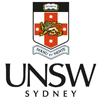Bachelor of Engineering (Honours) (Electrical)/Master of Engineering (Electrical)
UNSW
CRICOS provider number: 00098G TEQSA provider ID: PRV12055
Courses included
code
This course has been cancelled
^ The indicative annual tuition fee is based on a full-time student enrolment load of 48 credit points per year, or 1.0 Equivalent Full-Time Student Load (1.0 EFTSL). Tuition fees are reviewed annually and may increase each year. Tuition fees are calculated on a student’s exact enrolment. UNSW students enrolled in most courses have some flexibility in the subjects they choose. At times these subjects will be from outside their own faculty. For example, a Commerce student may choose elective subjects from a range of other faculties; a student in a combined Law degree with Engineering or Science will choose subjects from Science and Engineering and subjects from Law. These choices may result in a higher or lower total fee for the year.
About
In this five-year integrated program in Electrical Engineering you will extend your knowledge whilst working on cutting edge projects. You can also take a broadening discipline (minor) in an area such as mechatronics, computing, commerce, photovoltaics, music, satellite systems, mathematics, psychology or nuclear engineering. With around 35 undergraduate and postgraduate electives to choose from you can tailor the program to suit your interests.
ATAR Profile: Some UNSW offers were issued based on the UNSW Gateway Early Conditional Offer Scheme with a lower ATAR entry requirement. Refer to the Admissions Information for a complete ATAR profile by degree.
Areas of study
Energy systems, microsystems, photonics, systems and control, signal processing, wireless and data networks.
Career opportunities
Electronics, quantum computing, networking, power distribution, and robotics and control. Potential employers include energy service industries, large private industrial companies such as transport manufacturers, aerospace companies, mining companies, infrastructure service companies, electronics, networking and computing companies and small, innovative private firms specialising in the application of new technologies, services or products.
Professional recognition
Students can apply for membership of the relevant professional engineering or science institutions within Australia and affiliated overseas bodies, including Engineers Australia and the Australian Computer Society. International recognition offers graduates the opportunity to travel and work overseas.
Industrial experience: Students complete at least 60 working days of approved industrial experience as part of all accredited Engineering programs.
Honours
Honours Class 1 or 2 will be awarded on the basis of superior performance throughout the course.
Women in Engineering program: The Women in Engineering community at UNSW is a valuable support network that will help empower you to grow personally and professionally. With bespoke mentoring and development opportunities and our program of industry events, we aim to ensure you emerge from UNSW as a highly employable and qualified professional.
The ChallENG Program: Take part in interactive learning through the ChallENG program. The ChallENG program connects students, academics and companies to exciting, real-world projects and learning-based initiatives. The program will prepare you for your future career by helping develop technical and design skills and expanding your professional expertise.
Humanitarian Engineering: Use your studies to make a difference to disadvantaged individuals and communities by engineering solutions that improve lives and livelihoods. Take part in a Humanitarian Engineering project or include it into your studies as an elective or Minor.
Fees and charges
Refer to UNSW current fee information.
Admission criteria
Applicants with recent secondary education
Assumed knowledge: Mathematics Extension 1, Physics.
Bridging courses: Visit the UNSW website for information on UNSW Bridging Courses chemistry, mathematics and physics.
Bridging courses: Visit the UNSW website for information on UNSW bridging courses in chemistry, mathematics and physics.
Other applicants
Refer to UNSW general admission criteria.
Student profile
Visit the UNSW website.
Further information
View all details of this course on the UNSW website.
The academic content of all programs is subject to routine review.
Course updates
Courses are added and cancelled throughout the admissions year and course details are subject to change. Check the course search regularly.
Double degree options
Double degree options are available in a number of UNSW courses. For further information, visit the UNSW Sydney website.
Honours at UNSW
Studying honours offers a chance to develop your research and professional skills guided by staff who are passionate about research and the development of new researchers. Honours is an integral component of many UNSW courses or may be offered as an additional year of study to meritorious students.
Engineering
UNSW Engineering is the destination of choice for a quality engineering degree. Set yourself apart by studying at Australia’s top engineering faculty. Find your passion by choosing from the largest range of Engineering disciplines in the country, including both traditional and emerging areas like Quantum and Renewable Energy Engineering. Our internationally transferable degrees offer a countless range of dynamic career pathways.
Graduate as a well-rounded engineer through participation in our extensive student opportunities. Take part in real-world, project-based learning initiatives with academics and industry partners through the ChallENG program. Bring all your ideas to life in our makerspaces which are practical, hands on facilities and house everything you need. Work Integrated Learning is a core part of our degrees, and most Engineering students will take part in 60 days of industrial training, allowing you to graduate with on-the-job experience.
We are focussed on making the world a better place by providing disadvantaged individuals and communities with engineering solutions that improve lives and livelihoods. You can take part in Humanitarian Engineering projects through ChallENG or include it in your studies as an elective or Minor. We are also committed to diversity, The Women in Engineering community at UNSW is a valuable support network that will help empower you to grow personally and professionally, through our bespoke mentoring, development opportunities and program of industry events.
